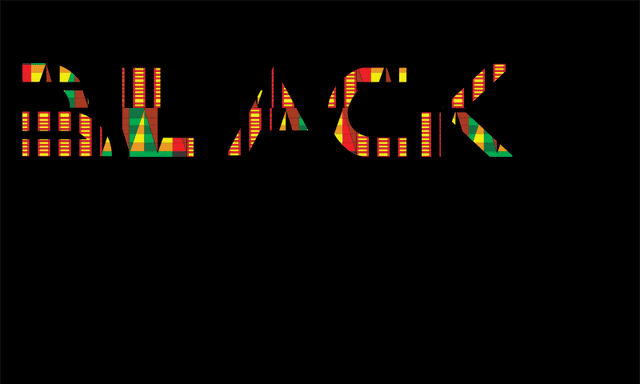The Garvey Effect
There are less than 14 days left in this 2021 Black History Month. . .Have you learned anything new?
On Valentines Day I shared a podcast post from NPR that discussed the life of Marcus Garvey and his effect on the Black nationalist movement. I was surprised to hear this type of content from NPR on Valentines Day, when everyone seems to forget it's Black History Month and instead focuses on a fictitious character that prompts you to buy all things red, pink, and eat chocolate.
I was intrigued to listen to this NPR special, especially when they shared recorded speeches of Garvey which I had never heard before. Marcus Garvey was one of many ancestors of Black History that I admired. I even created a graphic design project about him in college; a set of posters that highlighted the Harlem Renaissance. He and photographer James Van Der Zee were the main subjects in my typographic layouts. Van Der Zee photographed Garvey's U.N.I.A. (Universal Negro Improvement Association) organization so eloquently. So, I welcomed an opportunity to learn more about this man who encouraged ex-slaves and their descendents to leave this land filled with racism and hatred and move away to the "promised land of abundant Blackness" in Liberia.
Unfortunately, Marcus Garvey was not the best business man. Though he had great ideas and great intentions with his Black Star Line, to ship every descendent of Africa, back to Africa, he fell short in execution and planning. He did not have enough capital to purchase quality ships for this Black Star fleet, and being from Jamaica, he made an interesting misstep in judgement when approaching the KKK as an alliance to promote the mass exodus of Black people back to Africa. Again, good intentions, bad execution. I think most entrepreneurs can relate to this, at some point in their business journey.
So, what's something NEW that I learned from listening to this podcast? Aside from listening to Garvey's voice for the first time, and learning that he was an inquisitive smart child, I also discovered that he was a great orator. He wanted to be a great speaker, so he went to school to be THE BEST speaker he could be. At that time in history, Garvey knew that the chances for one to succeed in life were connected to how one sounds. He did not want to "sound" like he was from the countryside of Jamaica, he wanted to sound like a metropolitan aristocrat. "He took elocution classes and he entered elocution competitions. . . in Jamaica." as described by the narrator of the NPR podcast. He eventually moved to Harlem and put his knowledge into practice, and we all know, practice makes perfect.
At the very end of the NPR recording there was one more interesting fact noted. There is a speech Marcus Garvey wrote to an audience in Canada in the 1930's. This was after his efforts for the Black Star Line had failed, and he was deported back to Jamaica. In this speech in Nova Scotia he spoke his original words that are now most famously heard through the voice of Bob Marley: "We must emancipate ourselves from mental slavery, because whilst others can free the body, none but ourselves can free our minds."
How amazing that, though Marcus Garvey's actual plans for this all black, Black Star Cruise Line, shipping Americans back to Africa had failed, terribly, his dreams, his ambitions and ideas of Black pride, Black excellence, Black self-determination and greatness continue to live on through his words. So, in his case, his words actually spoke LOUDER than his actions. #blackhistoryisyourhistory

